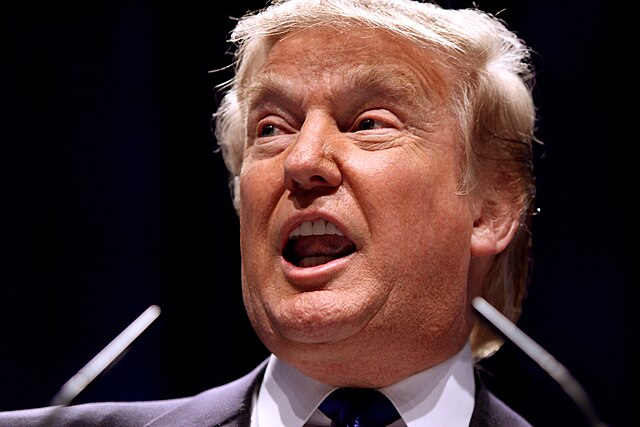How Trump’s ‘Gold Card’ US visa could work, what concerns it raises

Trump’s ‘Gold Card’ US Visa: A Game-Changer or a Controversial Move?
Former U.S. President Donald Trump has introduced a proposal for a new investor visa program, known as the “Gold Card” visa, which aims to attract wealthy foreign nationals willing to invest in the United States. The program, which would require a $5 million investment, is expected to offer a quicker path to U.S. residency and eventual citizenship compared to existing investor visas.
While some view this initiative as a boost to the economy, critics argue that it prioritizes wealth over merit and could widen social and economic disparities.
What Is Trump’s Gold Card Visa?
This proposed visa is designed for high-net-worth individuals seeking a fast-track route to U.S. residency. Unlike the EB-5 investor visa, which has stricter conditions and a lower investment threshold, this program appears to offer fewer bureaucratic hurdles and faster approvals.
Key Features of the Gold Card Visa:
$5 million investment requirement
Permanent residency benefits (Green Card privileges)
Expedited pathway to U.S. citizenship (possibly in under 5 years)
Targeted at business leaders, investors, and entrepreneurs
Faster processing compared to EB-5
This program is expected to attract ultra-wealthy investors from regions such as Asia, Europe, and the Middle East, where similar visas have seen high demand.
How Does It Compare to Other U.S. Visa Programs?
To understand how this visa stands out, let’s compare it to existing investor and business-related visa options:
| Visa Type | Investment Required | Processing Time | Path to Citizenship? |
|---|---|---|---|
| EB-5 Visa | $800,000 – $1.05M | 2+ years | Yes, after 5 years |
| E-2 Visa | No fixed amount | Varies | No direct path |
| O-1 Visa | No investment required | Few months | Yes, but requires sponsorship |
| Gold Card Visa | $5 Million | Likely faster | Yes, with expedited process |
While the EB-5 visa requires applicants to invest in job-creating businesses, the Gold Card program does not specify strict job-creation requirements, making it a more attractive option for passive investors.
Why Is Trump’s Gold Card Visa Proposal Controversial?
Although many countries offer investment-based residency, Trump’s proposed plan has triggered strong debates due to economic, ethical, and political concerns.
1️⃣ Prioritizing Wealth Over Merit
Critics argue that this visa undermines the traditional U.S. immigration system, which typically prioritizes:
Family reunification
Employment-based visas for skilled professionals
Humanitarian considerations (asylum, refugee programs)
🚨 Concerns:
- High-skilled professionals may face longer waiting times while wealthy investors jump the queue.
- It could create an imbalance where financial power dictates immigration benefits.
💡 Supporters’ Viewpoint:
- The visa brings in billions through foreign direct investment.
- Real estate, business sectors, and job markets could see growth.
2️⃣ Risk of Financial Misuse & Corruption
🔎 Past investor visa programs in countries like Canada and Portugal have been linked to:
Money laundering risks – Wealthy applicants using visas to park funds in safe jurisdictions.
Speculative real estate purchases – Driving up property prices without contributing to job creation.
Tax avoidance loopholes – Investors benefiting from U.S. residency without paying full taxes.
🚨 Possible Solutions:
- Stronger financial verification processes to track investments.
- Strict regulations on how funds must be used in the U.S. economy.
3️⃣ Impact on the U.S. Housing Market & Economy
🏡 Luxury Real Estate Boom & Rising Prices
- Wealthy investors may buy high-end properties, making housing less affordable for local buyers.
- Cities like New York, Los Angeles, and Miami could see housing costs skyrocket.
💼 Does It Really Create Jobs?
- Unlike EB-5, this program does not explicitly require job creation.
- If investments focus on real estate or stocks, local businesses and workers may not benefit.
🚨 Potential Negative Impact:
- Could widen economic inequality by favoring the wealthy elite.
- Might not help job growth in struggling regions.
What Are Lawmakers Saying?
🔵 Democrats’ Concerns:
- The visa would create an immigration system that favors the ultra-rich.
- It might weaken opportunities for skilled immigrants and workers.
🔴 Republicans’ Support:
- Some GOP leaders see it as a way to bring economic growth and foreign investment.
- Less government intervention in immigration policies.
🟡 Biden Administration’s Position:
- No official stance yet, but experts believe Congress would demand strong financial safeguards if the program moves forward.
Final Thoughts: Is This Visa a Good Idea?
With elections approaching, Trump’s Gold Card visa proposal has added a new dimension to the U.S. immigration debate.
✅ Potential Benefits:
- Massive foreign investment inflow.
- Increased capital for business and real estate.
- Fewer bureaucratic delays compared to EB-5.
❌ Major Risks:
- Could worsen income inequality and drive up housing costs.
- May not create enough American jobs.
- Possibility of financial fraud and misuse.
🚨 What Happens Next?
The proposal needs legislative approval before becoming law. If passed, it could reshape the U.S. immigration system by offering a pathway based purely on wealth rather than skills, family ties, or humanitarian needs.






